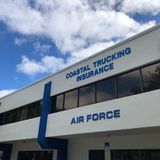Key Tips for Commercial Trucking Insurance in North Carolina
In the bustling world of commerce, the wheels of industry often rely heavily on the transportation of goods. In North Carolina, where industries thrive and businesses flourish, commercial trucking plays a pivotal role in keeping the economy moving. However, behind every successful trucking operation lies a crucial element that ensures its smooth operation and protection: commercial trucking insurance.
Whether you're a seasoned trucking company or a budding entrepreneur looking to venture into the world of transportation in North Carolina, understanding the nuances of commercial trucking insurance is paramount. From safeguarding your assets to complying with legal requirements, having the right commercialtrucking insurance in North Carolina can make all the difference in the success of your enterprise.
Key
Coverages and Considerations
When shopping for commercial trucking
insurance in North Carolina, it's essential to understand the various types of
coverage available and assess your specific needs. Here are some key coverages
and considerations to keep in mind:
● Liability Insurance: Liability insurance is a
fundamental component of commercial trucking coverage, protecting against
accidents in which the insured party is found to be at fault. In North
Carolina, minimum liability coverage limits are mandated by law, but many
trucking companies opt for higher limits to ensure adequate protection.
● Cargo Insurance: Cargo insurance protects the
goods being transported against loss or damage while in transit. This coverage
is particularly important for trucking companies responsible for valuable or
perishable cargo, as it can help mitigate financial losses in the event of
accidents, theft, or other unforeseen circumstances.
● Physical Damage Coverage: Physical damage coverage ensures
the commercial vehicles themselves are protected against damage caused by
accidents, vandalism, or natural disasters. This coverage is typically divided
into comprehensive and collision coverage, providing comprehensive protection
for a wide range of risks.
● Uninsured/Underinsured Motorist
Coverage:
Uninsured/underinsured motorist coverage is designed to protect against
accidents involving other drivers who either have insufficient insurance
coverage or no insurance at all. This coverage can help cover medical expenses
and property damage for insured drivers and passengers.
● Workers' Compensation Insurance: Workers' compensation insurance is essential for trucking companies with employees to provide coverage for work-related injuries and illnesses. In North Carolina, employers are required to carry workers' compensation insurance for their employees, including those employed in the transportation industry.
Conclusion
In the dynamic world of commercial
trucking in North Carolina and commercialtrucking insurance in Florida, navigating the road of insurance can be
complex, but with the right knowledge and guidance, you can safeguard your
business against potential risks and liabilities. By understanding the various
types of coverage available, assessing your specific needs, and choosing a
reputable insurance provider, you can drive your trucking operation toward
success with confidence and peace of mind.

.jpg)
.jpg)
Comments
Post a Comment